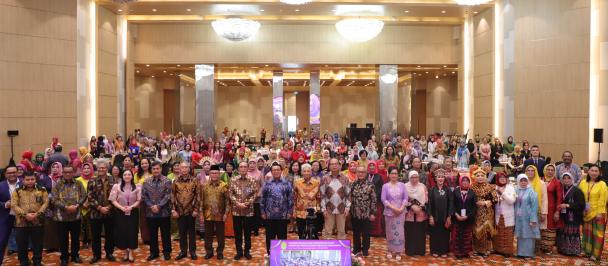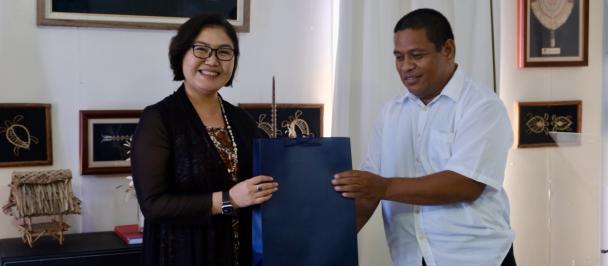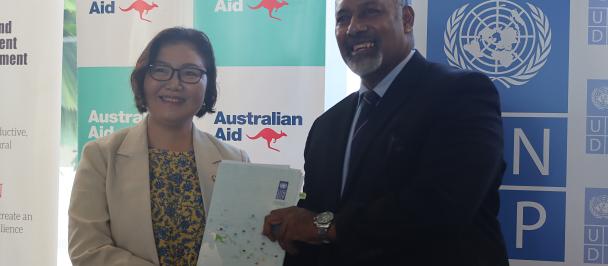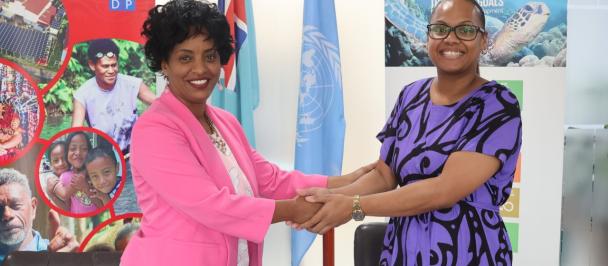Building a More Accountable Civil Society in Tuvalu
May 10, 2024
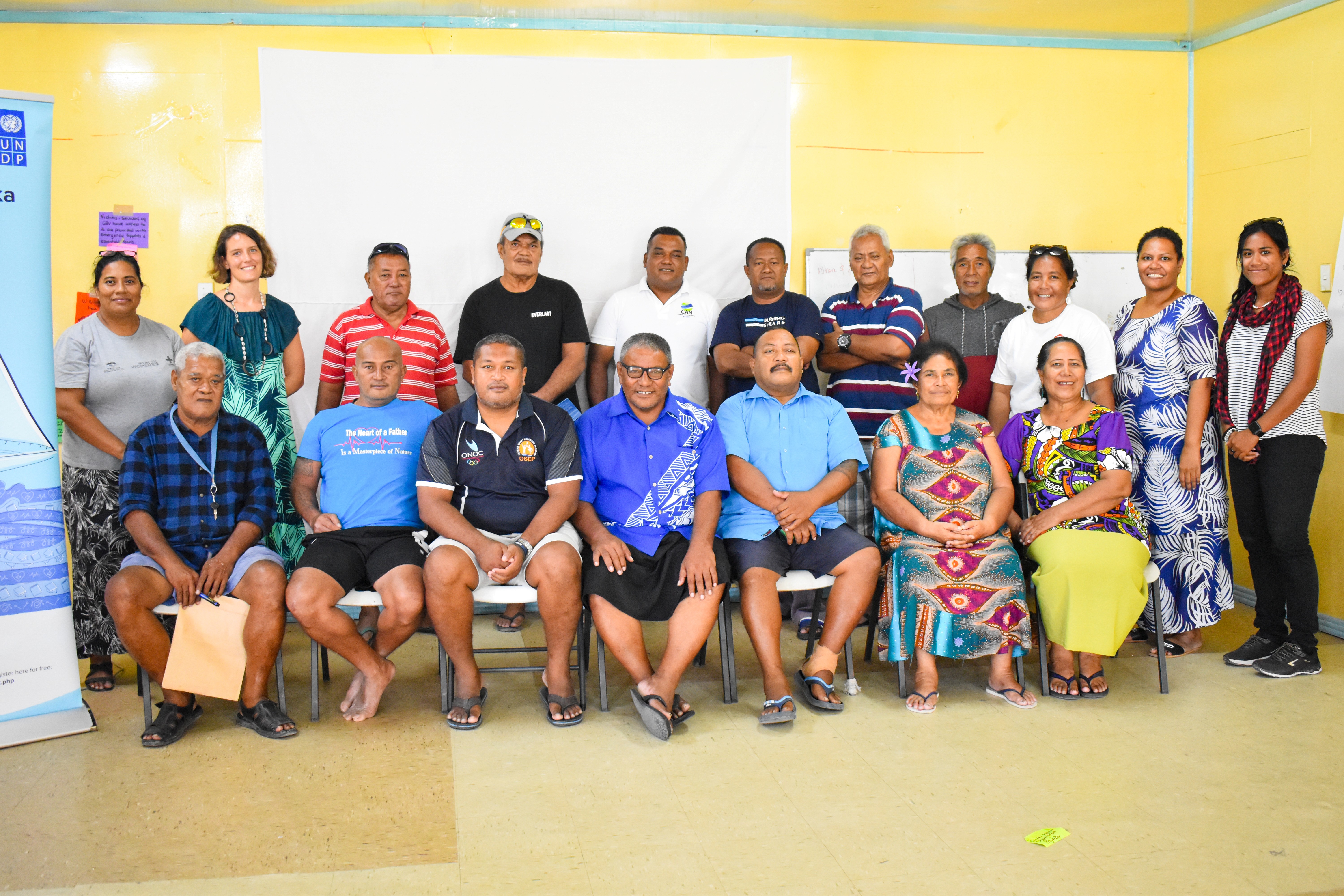
Participants following the workshop on enhancing accountability in Tuvalu.
Funafuti, Tuvalu – “There's a critical need to address public financial management," said Reverend Alamatini Lusama of the Ekalesia Kelisiano Tuvalu (Church of Tuvalu).
"We've seen too many projects fail due to misuse of funds. Donors get discouraged, and ultimately, communities suffer. When proper processes aren't followed, there are no real benefits for the people. This workshop is a crucial step towards ensuring accountability and delivering positive outcomes for Tuvalu.”
Reverend Lusama’s words echo the sentiment shared by many participants following a workshop held in collaboration with the Tuvalu Association of Non-Governmental Organizations (TANGO) earlier this month.
This work on enhancing accountability in Tuvalu, and across the Pacific, is spearheaded by the UN Development Programme Pacific Office’s Vaka Pasifika project, supported by the European Union (EU).
The ‘sautalaga’ (gathering) followed the recent publication of the Tuvalu Accountability Ecosystems Analysis – conducted by La Trobe University and commissioned by the Vaka Pasifika project. The study found limitations in regard to accountability due to social structures and resource constraints, while also highlighting promising avenues such as recent legal reforms and traditional concepts of community responsibility.
The workshop focused on strengthening accountability within Tuvalu's civil society sector, with this activity directly contributing to the realization of Sustainable Development Goal (SDG) 16: Peace, Justice and Strong Institutions, by promoting transparency and good governance within these organizations.
The workshop fostered in-depth discussions on crucial aspects of accountability, including:
- Demonstrating responsible use of donor funds: Participants explored strategies for establishing robust financial management systems, ensuring transparency, and building trust with donors.
- Ensuring inclusivity and leaving no one behind: The workshop emphasized incorporating diverse voices and perspectives into project planning and implementation, contributing to SDG 10: Reduced Inequalities, by promoting inclusive and equitable development.
- Effectively measuring and communicating results: Participants learned about Monitoring and Evaluation tools to track progress and demonstrate the impact of their projects. This aligns with SDG targets related to results-based management and ensuring accountability for achieving development goals.
The workshop empowered civil society organization representatives like Reverend Lusama and Gitty Yee, who found the monitoring and evaluation, and budget cycle sessions particularly valuable. This newly acquired knowledge will be instrumental in their work, contributing to evidence-based decision making and efficient resource allocation, both priorities noted within the the Pacific Islands Forum’s 2050 Strategy for the Blue Pacific Continent.
Richard Gokrun, from the Tuvalu Climate Action Network, highlighted the workshop's impact on fostering critical reflection on accountability practices, especially when dealing with donor funding. He noted that increased transparency and reporting build trust with donors, ensuring continued support for climate action projects crucial for Tuvalu's sustainable development.
The TANGO Workshop served as a catalyst for ongoing discussions and action within its member organizations. By prioritizing responsible management, inclusivity, and clear communication of results, TANGO strengthens its role as a champion of accountability in Tuvalu's civil society sector, ultimately contributing to achieving the SDGs and the Blue Pacific Strategy's vision for a sustainable future.
For more information, please contact:
Marine Destrez, Project Manager, Vaka Pasifika Project, UNDP Pacific Office in Fiji; (E): marine.destrez@undp.org
For further media enquiries, please contact:
Nicholas Turner, Communications Specialist, UNDP Pacific Office; (E) nicholas.turner@undp.org

 Locations
Locations